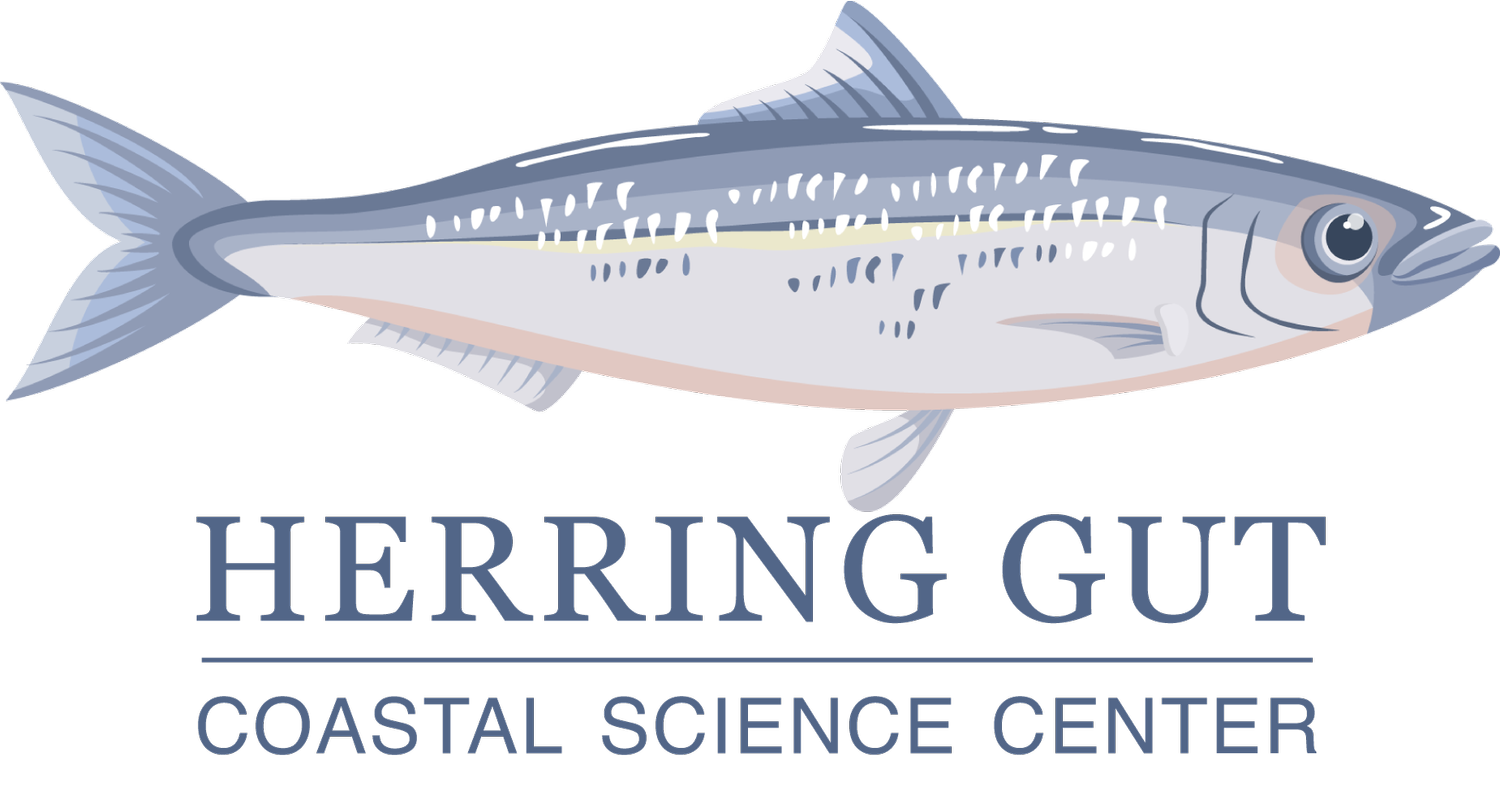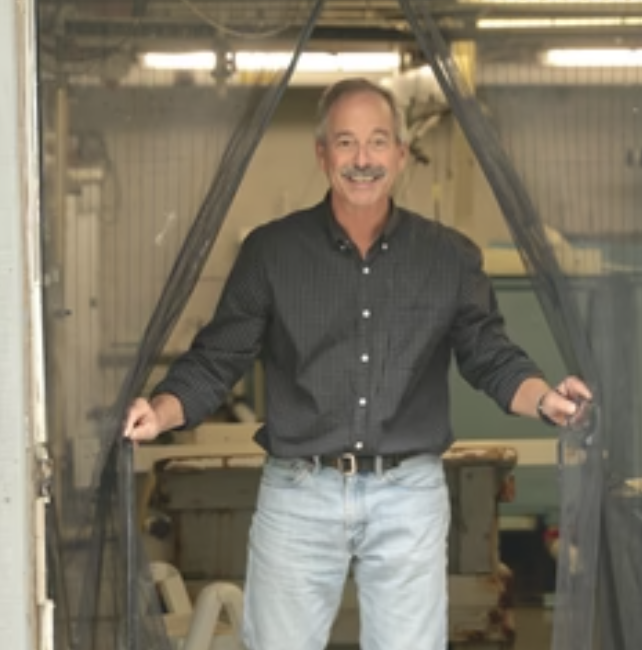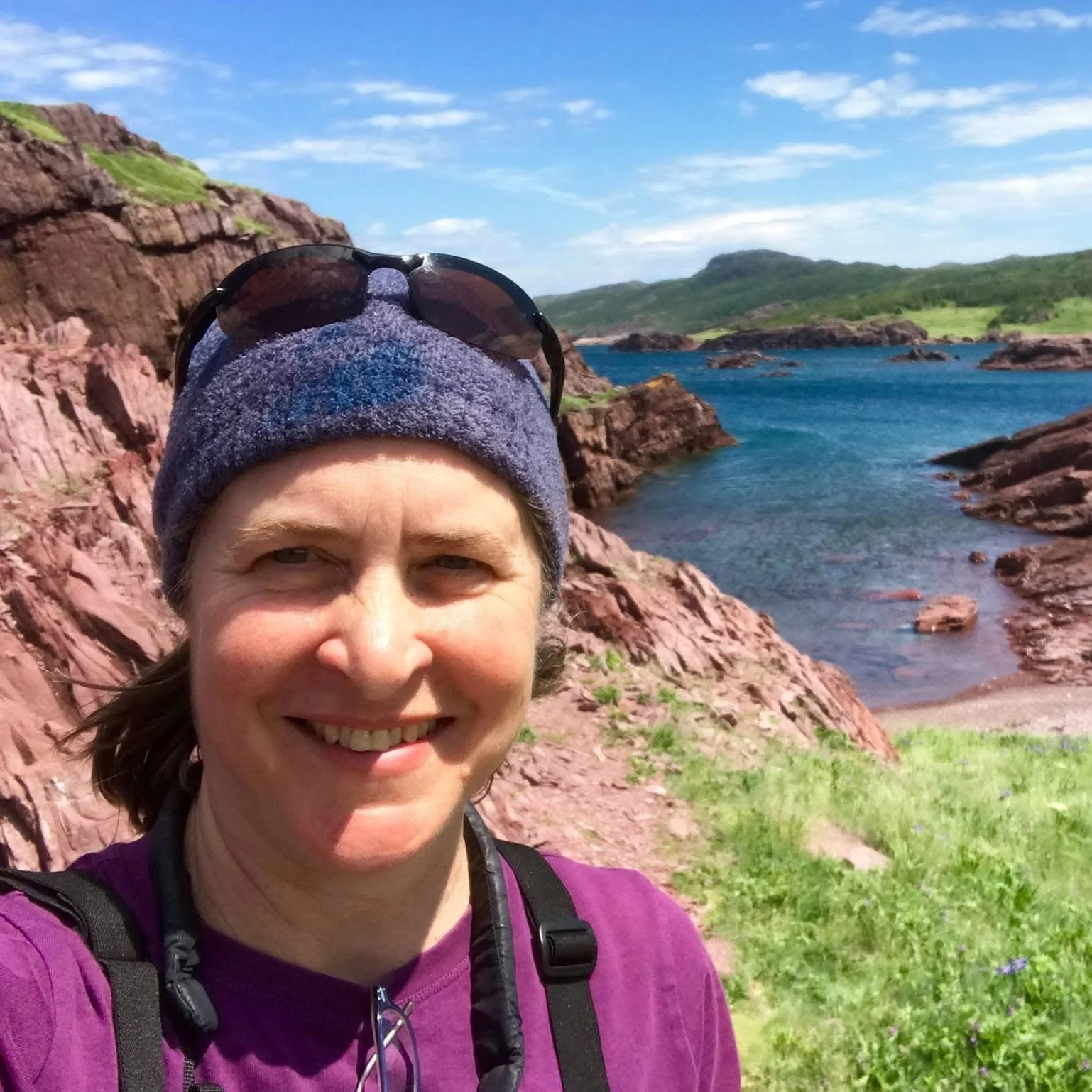The Phyllis Wyeth Visionary Award
Annually, at the summer fundraising event, this award of recognition is bestowed upon an individual that has proven to have contributed to the field of marine science that reflects the Herring Gut Coastal Science Center’s vision and work of founder Phyllis Wyeth.
Phyllis Wyeth (1940 - 2019) founded the Herring Gut Learning Center in 1999. Inspired by her mother, Alice du Pont Mills, an environmental activist who raised her to “leave the world a better place.” Wyeth led her life with a dedication to the environment and giving back to her community. Wyeth created Herring Gut Learning Center with the goal of teaching local children about aquaculture and marine conservation and to help preserve Maine’s traditional fishing communities. Wyeth was later awarded the NOAA Fisheries Environmental Hero award in 2002 for her efforts with the organization. Go here to read more about Phyllis’ life and work.
2025 Phyllis Wyeth Visionary Award Winners
Bill Mook (L), Chris Soctomah (R)
2025 Phyllis Wyeth Visionary Award Nominees
-

Krisanne Baker
Ecological Artist and Art Educator
Photo credit to medium.com
As an ecological artist and art educator, Krisanne’s mission is to grow environmental consciousness particularly in the area of her expertise - water issues - awareness, activism and remediation projects to benefit water availability, rights, and health. Currently, lecturing at the college level concerning art and the green revolution; teaching caring, research & creating through her Environmental Art & Science curriculum to high school level teens.
Krisanne is an ocean advocacy artist whose work concerns water quality, availability and rights of water and its inhabitants, both locally and globally, and inspiring worldwide ocean stewardship. Her multimedia sci-art (science plus art) installations and paintings are studies of the patterns of the natural world, symbiotic arrangements of colors and ocean life in macroscopic and microscopic views of the “heart and lungs of the planet”, and the sublime she experiences in her favorite realm - underwater. For fifteen years, she has studied the affects of climate change upon the ocean and Earth; it is this research on and compassion for the ocean that inspires her stewardship work, her coral reefs and plankton imagery, the reef guardians series and other ocean inhabitants images.
-
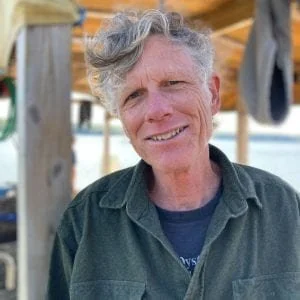
Christopher V. Davis
Innovator in Residence, Maine Aquaculture Innovation Center
Photo credit to Maine Aquaculture Innovation Center
CHRIS DAVIS, Ph.D. Chris served as Executive Director of the Maine Aquaculture Innovation Center, for 20 years from 2004 through 2024. Now his work with MAIC continues as the ‘Innovator in Residence.” His responsibilities include conducting aquaculture research, overseeing ongoing research projects funded by the Center, conducting outreach and education activities, providing support services for the aquaculture business incubators in partnership with the University of Maine and serving as a Conference Manager for the Northeast Aquaculture Conference and Exposition. Davis currently or has past served as a board member of the Maine Technology Institute, Maine Innovation Economy Advisory Board, Maine Aquaculture Association, Maine Department of Marine Resources Aquaculture Advisory Council and president of the National Shellfisheries Association.
-
Alison England
Middle School Science Educator, St. George Municipal School Unit
Photo credit to Alison England
Alison is a gifted middle school science educator. For many years Alison facilitated The Stream Restoration Alewife Project with St. George students. Working closely with municipal and regional partners, students helped restock alewives, discovered the first returning alewives in over 30+ years, “ground-truthed” the fish passage of a new culvert the state installed, made recommendations to the town Conservation Commission, which were adopted; interviewed fishermen and community members to capture first person narratives and to establish habitat changes since the run was lost and restoration efforts began. Alison is proud of the commitment of students to not only provide service to their community in their research and documentation, but also in their belief that their engagement could make a difference.
Alison uses many resources available, none more important than the support of her teaching team and of community members that volunteer to partner in the classroom. She’s grateful for their expertise and investment in our youth. Students have also worked with the Maine EPSCoR’s K-12 eDNA Water Sampling Program. Sampling environmental DNA in their very own local aquatic sites has given students a fantastic opportunity to bring “high tech” analysis into the classroom – a real bridge between what requires a professional lab and the imagination and inquiry that students of all ages are capable of. Students have also been collaborators with the Gulf of Maine Research Institute to analyze over 100 years worth of correlated local tide data to understand and describe local sea level changes historically, compared to today.
-

Sarah Gladu
Community Science Director, Coastal Rivers Conservation Trust
Photo credit to Coastal Rivers Conservation Trust
As the Community Science Director, Sarah is deeply involved in Coastal Rivers Conservation Trust's mission to conserve land, collect data, support shorefront property owners, and prevent the introduction of invasive aquatic plants throughout midcoast estuaries and rivers. She provides nature education to all ages, and oversees citizen science programs, training teams of horseshoe crab monitors, water quality monitors, midcoast stewards, and oyster famers.
-

Alison McKellar
Select Board Member, Town of Camden, ME
Photo credit to Pen Bay Pilot
Alison McKellar, based in Camden, Maine, has a strong background in nonprofit management and community engagement. She serves as a Member of the Council for the Town of Camden, where she has been actively involved since June 2017. Previously, she directed the Board of Directors at NuDay Syria for six years, focusing on humanitarian efforts. Her teaching experience includes a role as a Spanish teacher at Watershed School, where she contributed to innovative educational programs. Alison is passionate about making a difference through research and program development in the nonprofit sector. She enjoys documenting things that are missing from the conversation and elevating voices that aren’t being heard.
-

Bill Mook
Originally from Cooperstown, New York, Bill founded Mook Sea Farm in 1985. He earned a BS in Environmental Sciences from Wesleyan University and came to Maine for graduate work at the Darling Marine Center, where he studied with a cohort of the OG Damariscotta River aquaculturists. Bill continually seeks, develops, and tests new technologies aimed at improving the process and resiliency of growing shellfish at each stage of their life. Bill and his wife, Karen, have been married 40 years and live on the Sheepscot River in Newcastle, Maine.
-

Chris Soctomah
Fisheries Biologist for the Passamaquoddy Tribe at Sipiyak Environmental Department
Chris oversees and implements fish passage studies and projects at the Skutik (St. Croix), Boyden, Pennamaquan, and Denny's watersheds. His efforts are to facilitate and implement western science approaches while also incorporating traditional ecological knowledge. This approach helps develop best management strategies to restore and protect diadromous fish populations as well as coastal and riverine habitats within our Homelands.
As a leader with the Sipayik Environmental Department, Chris has consistently championed efforts that merge traditional Passamaquoddy ecological practices with modern scientific approaches. His visionary work in restoring salt marshes, protecting culturally significant species like sweetgrass, and advocating for climate resilience projects demonstrates his long-term, holistic view of ecosystem health and sustainability.
-
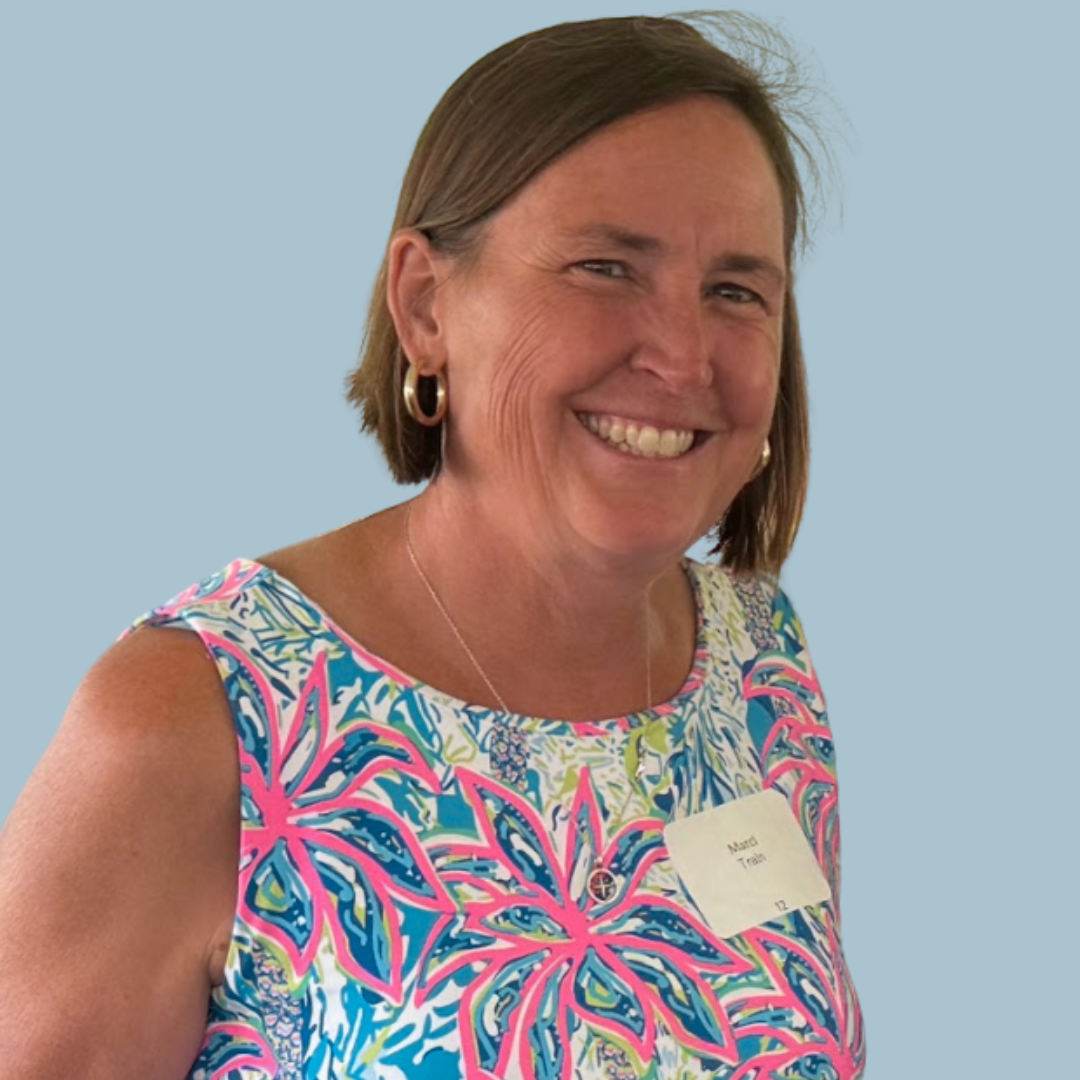
Marci Train
Photo credit to Herring Gut Coastal Science Center
Marci Train takes her students out of the classroom to the front lines of climate change. She considers the whole island as her classroom because the class gets to go out and share the whole physical island.
Marci has her students go to the beach where they observe, form a hypothesis and bring the data back the classroom to analyze and look for trends.
Her students understand that while we're using what we collected for data for our science projects-- we're doing real life math and we're doing projects that real scientists have used our data in the past with their information. That real life data isn't just numbers and statistics to her students. It is their home. These Maine island students have to care about the changing climate because they are surrounded by the ocean. Many of the students at the school have family members who work and rely on the sea. So they know their future depends on it.
Marci wants them to be aware of the world around them and know that they can make a difference.
-

Krista Tripp
Photo credit to the Island Institute
Krista Tripp has been a lobsterman for nearly her whole life – serving as a sternman for her father and her grandfather growing up. The job is practically in her DNA, and while she loves hauling traps and plans to continue, she also knew she wanted to diversify.
She was nervous about new regulations and obstacles the industry is facing. But she also really loved the fact that oysters can give back to the environment. Her family has made their living on the water and oysters can ensure more people can continue to do so.
Krista started to oyster farm as a way to supplement her income in 2017. Her business, Aphrodite Oysters, grows oysters over the course of three years.
While she’s busy building a new business, don’t think she’s forgotten about her roots. She still fishes all 800 of her lobster traps.
-
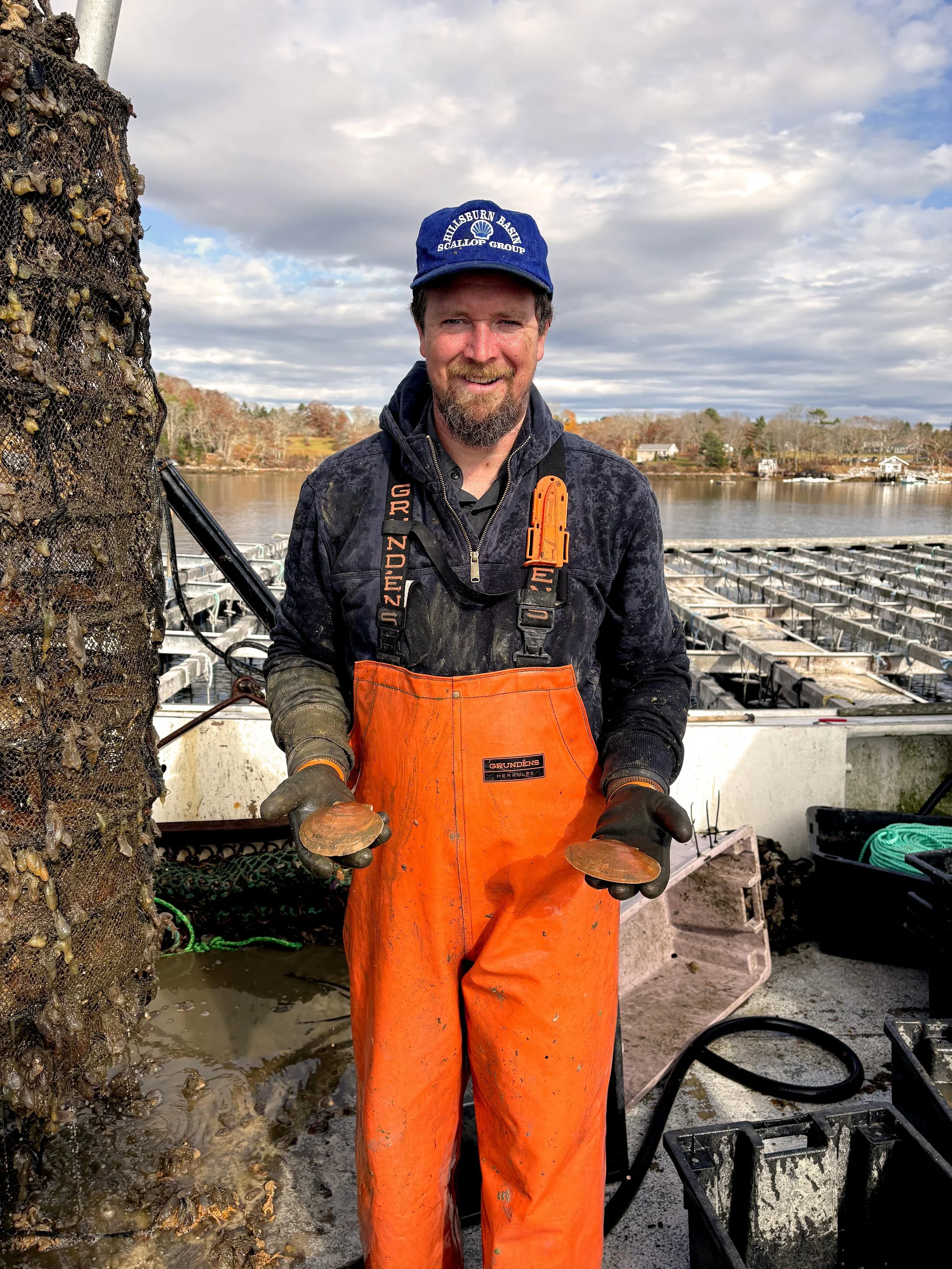
Charlie Walsh
Photo credit to Seascale
Charlie grew up on the coast of Maine and started his career cooking professionally and lobstering in the off season, all while managing puffin and tern colonies for USFWS in the summers. He has spent the last decade immersed in scaling aquaculture production and developing sustainable seafood products for the retail and wholesale market. From running the University of Maine’s experimental shellfish hatchery, scaling nursery and farm production of organic sugar kelp with Maine Sea Farms, growing oysters for Pemaquid Oyster, and building American Unagi’s processing and smokehouse operations, he has experience in the full spectrum of Maine aquaculture farm to table economy.
2024 Phyllis Wyeth Visionary Award Winners:
Sara Rademaker (L) and Anne Langston Noll, PhD (R)
2024 Phyllis Wyeth Visionary Award Nominees
-

Anne Langtson Noll, PhD
Associate Director of the Maine Aquaculture Innovation Center
Photo credit to the Maine Aquaculture Innovation Center
In her work with the Maine Aquaculture Innovation Center, Annie leads and supports research, workforce development initiatives, education, and outreach projects across the state and beyond. She also uses her own farm, Pemetic Sea Farms, as a platform for experimental work and teaching, often hosting visitors, students, and others curious about aquaculture and wanting to gain experience as they start a business or a career in the industry.
-

Jaclyn Robidoux
Marine Extension Associate at Maine Sea Grant
Photo credit to Maine Sea Grant
Jaclyn supports and leads research, education, and outreach initiatives across the state and in many cases across the country. Many of these initiatives continually drive public engagement with aquaculture and help position Maine as a national leader in sea farming, including Maine Seaweed Week and the Maine Oyster Trail. She is a role model, leader and mentor to many in the aquaculture community.
-

Sara Rademaker
Photo credit to American Unagi
Sara has exemplified self-starting entrepreneurism and has carved out an entire new industry- America eel cultivation and grow out from glass eels to smoked adults. She came through Herring Gut as an Educator from 2009-2011.
-

Dana Morse
Photo credit to Maine Sea Grant
His work as an ‘extension agent’ involves a mixture of educational programming, technology transfer and applied research. He has been active in the intersection between commercial fishing and aquaculture, and in developing approaches that maximize the integration of these industries, toward the diversification of options for fishermen and the continued prosperity of Maine coastal communities.
-

Susie Arnold, PhD
Photo credit to the Island Institute
Susie has been working with Island Institute for 12 years where she leverages her deep knowledge of Maine’s coast and the impacts of climate change on its people and ocean. Her work focuses on the impacts of climate change on Maine’s fisheries and fishing communities and she leads the institute’s efforts in science translation and the science of hope as a framework for climate action.
-

Antonia Small
Entrepreneur, oyster farmer and owner of Ice House Oysters
Photo credit to antoniasmall.com and Benjamin Poupel
Toni is an ambassador for the working waterfront every day - in her interactions with the local community, but also throughout Maine and more broadly. Her realistic perspective of aquaculture development is helpful, and her respect for other types of fishing and harvesting of seafood is constructive.
-

Monique Coombs
Director of Community Programs at Maine Coast Fishermen's Association
Photo credit to the Maine Coast Fishermen’s Association.
Monique has led efforts in the midcoast to bring the public, fishermen, aquaculturist, and others together to talk about protecting working waterfronts. She is a smart and effective consensus builder who is generous with her time and recognizes the importance of engaging with our regional network and educating our communities about the working waterfront.
-

Kate Stookey
President and CEO of Maine Coast Heritage Trust
Photo credit to Maine Coast Heritage Trust
Under Stookey's stewardship, a million dollar donation was acquired to preserve ecologically important salt marshes up and down Maine's Coast. MCHT is using real-time research to inform restoration practices that have the potential to enhance carbon storage and restore vitality to Maine’s threatened saltmarshes.
